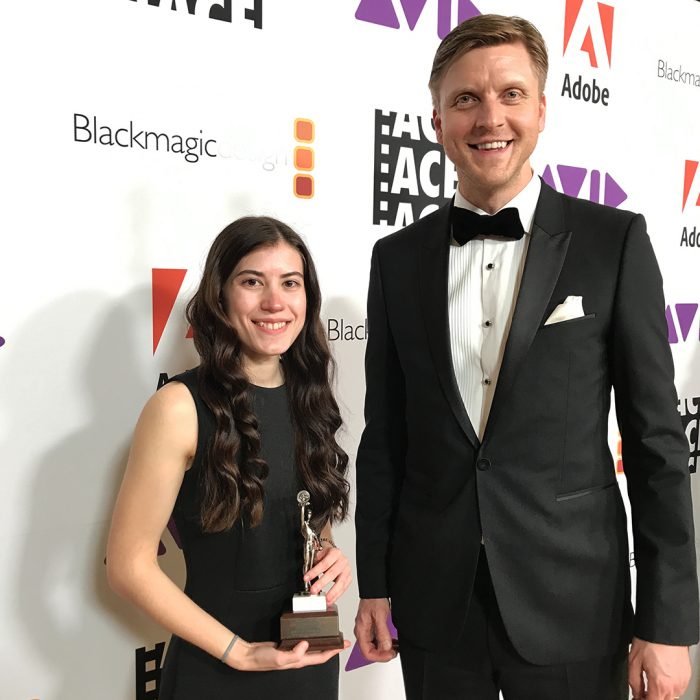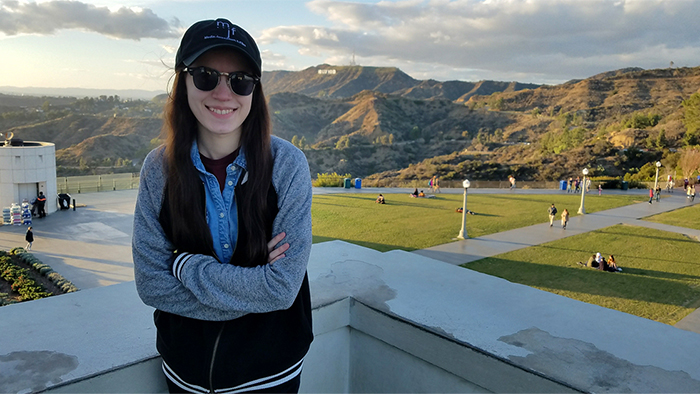Digital film major Mariah Zenk is used to spending a lot of time in the editing lab. For example, as part of the post-production team for Season 3 of “Show-Me Chefs” she says, “I was in the lab at least 50 or 60 hours over the summer.”
But this time was different. As a participant in the Student Editing Competition sponsored by the American Cinema Editors (ACE), she downloaded a set of dailies — unedited footage from a well-known TV show — and used it to create a 60-second scene.
To help guide her decisions, she had notes from the show’s script supervisor and a lined script, which tracked the camera coverage of the scene. Other than these resources, she was on her own. “You just have to do it,” she says.
Mariah worked with intention and care to create her best version of the ACE competition scene. And she says, “It was fun. They used a three-camera setup,” which meant the scene had more coverage than she typically works with on student projects — and more decisions for her to make during the edit.
“The quality was fantastic, which was really exciting to work with,” she says. “I definitely learned things I didn’t know.”
But she submitted her entry without any expectations. “I had nothing to compare it to,” she says. “When I sent it off, I didn’t think I’d hear back. I was just happy I’d given it my best shot.”
So when she received a voicemail from ACE letting her know she’d been selected as a finalist, she was pretty excited. “I think I scared my roommate,” she remembers, laughing.
Mariah and two other finalists were invited to attend the ACE Eddie Awards in Beverly Hills on Jan. 26.
At the awards ceremony, Mariah learned she was the winner of the Student Editing Competition.

Learning by doing
Mariah believes the practical experience she’s gained working on productions has been vital to her education. Even when she was a freshman, she says, “I was lucky enough to get involved immediately.”
Professor Andrew Twibell first helped her get on the crew of the web series, “Backstage,” which provided valuable early learning and networking opportunities.
Another nice surprise? There were many women working on the set. She says, “There was pretty equal representation of men and women. And everyone really respected each other.”
Such experiences — along with the example provided by female faculty members in the film program — have been important as she prepares for her career. She’s learned to be comfortable asserting herself and demonstrating her skill level.
And it helps that she loves the work so much — even the obsessive details of film editing. “I’m that special kind of crazy where I’ll watch the same thing over and over,” she says. “It doesn’t really get old.”
Sample Mariah’s work
Among the many projects Mariah has worked on: this recruitment video for the department of media, journalism and film, which she edited.

